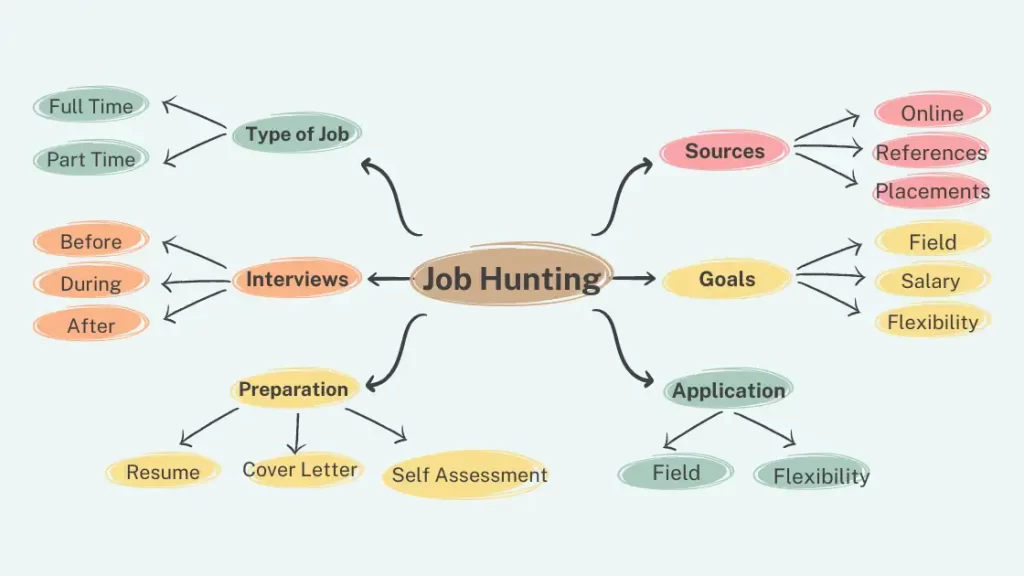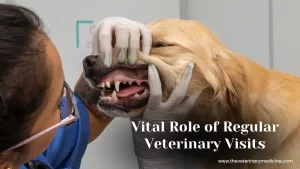These job tips given in the post can also be considered for Veterinary Technician, Veterinary Assistant, Veterinary Industry Jobs, Jobs in Veterinary Medicine, Jobs in Veterinary Pharmaceutical Sales, Entry Level Veterinary Jobs, Veterinary Insurance Jobs and Veterinary Nurse Jobs.
Most of the veterinary graduates/ veterinary assistants/ veterinary technicians/ veterinary nurses have to look for job options after completion of their certificates, degree/ post-graduation. Most of the time job discussions are not a part of course curriculum and every fellow has a different journey.
Not every question/ point listed in the post is possible to ask or discuss during the interviews. Sometimes you have to evaluate and research by yourself before appearing in interview. Some of the points can be explored even after joining the job.
In this post we will discuss several important considerations to keep in mind before joining a private sector job (pet clinic/ pharmaceuticals etc.) as a veterinarian/ veterinary assistant/technician/nurse:
1. Location:
Consider the location of the clinic or job. Is it conveniently located and easily accessible to you and clients both? Is it located in an area with a high demand for veterinary services or you have to make efforts for sustainable income? Sometimes it’s not in the city area and hard to manage in extremely rural condition if you are not used to. If frequent travel is a part of your job (ambulatory services or pharmaceutical representative), then see if you can manage spend hours while traveling.
Mostly this is already described in the job requirements but you have to evaluate.
2. Work environment:
It is important to consider the work environment of the clinic / place you will be joining. Is it a single ownership or multiple one as each ownership model has its own benefits and drawbacks.
Case load (a high volume of cases, or a slower pace with more time to spend with each patient), reputation of clinic or company (ask from previous or existing staff about track record with employee engagement and retention), practice growth (expansion or new service addition and existing services), practice stability (well established or new) etc. are also important aspects.
Does clinic or practice consider collaboration? Do they have collaborative relationships with local animal shelters/ animal welfare organizations and other local professionals/ clinics (referral system), such as trainers, groomers, or animal behaviorists. These collaborations can be beneficial for referral cases and for sharing resources and expertise.
Try to know about availability and expertise of the clinical support staff at the clinic, such as other veterinarians, technicians and assistants. A well-trained supportive staff can greatly improve the efficiency and effectiveness of the practice.
Is the clinic well-equipped with the necessary tools, diagnostics and technology to allow you to provide the best care to your patients? Is the clinic well-staffed with a supportive and collaborative team?
3. Clientele:
Evaluate the type of clientele of your organisation serves or you have to serve or deal with. Are the clients willing to pay for high-quality care, or are they more price-sensitive? It becomes more important in case of a target-oriented job and become stressful in later scenario. Mostly it depends on the area or locality.
4. Type of practice and duties:
Always know if it is a mixed practice of species specific. Consider whether you have expertise to provide emergency care, emergency medicine, exotic surgery, exotic medicine, orthopaedic surgeries, cardiology, ophthalmology, acupuncture or chiropractic care, animal physical therapy services, such as massage therapy or rehabilitation exercise etc according to the work environment. Also know if they offer telemedicine service to their clients or not. As it may involve some legislative rules or laws.
Does the clinic provide on call visits and home care for their clients or pets? And does the clinic has the necessary resources and expertise to provide home care for pets, such as in-home euthanasia or hospice care.
Among all of these what will be your role or duties? Is there any monthly or weekly revenue targets?
5. Working hours:
Consider the working hours of the clinic or job and whether they align with your personal preferences. Do you prefer working regular daytime hours, or are you open to working evenings and weekends? In a remote job or online job, it may not be fix. It will help you in keeping a work and personal life balance without stress.
6. Work-life balance:
Make sure you understand the clinic’s expectations for working hours and on-call responsibilities. Consider the clinic’s policies on vacation and time off, including how vacation time is accrued and how requests for time off are handled. It’s important to maintain a healthy work-life balance to avoid burnout. Ask if you are going to get compensatory leave or payment for your extra efforts after working hours. If so, make sure you understand the expectations and compensation for this work.
7. Compensation and benefits:
Make sure you understand the compensation and benefits package being offered by the clinic/ employer. This includes salary, bonuses, vacation time, weekly off and any additional perks or benefits.
Consider the clinic’s policies on employee benefits, such as health insurance, and paid time off.

8. Professional development opportunities:
Consider whether the clinic or company offers opportunities for professional development, growth and continuing education programs. It’s important to stay up to date on the latest advances in veterinary medicine or your sector for professional upliftment and your personal growth.
9. Training opportunities:
Consider whether the clinic offers training opportunities for its veterinarians/ technicians/ nurses to learn new skills and techniques. This could include hands-on training, workshops, or conferences. Know if they will be sponsored or you will have to pay from salaries. Sometimes there is a fixed minimum service period in case of fully funded trainings or special courses.
10. Growth opportunities:
Consider whether the clinic/ company/ organisation offers opportunities for growth and advancement. Are there opportunities to take on additional responsibilities or move into leadership positions? Always remember that your personal growth is also important with institutional growth.
11. Support for new graduates:
If you are a new graduate and do not have previous experience then, it’s important to find a clinic/ company/ organisation that is supportive of new employees and provides mentorship and guidance.
12. Practice management:
Consider whether the clinic has strong practice management systems / software in place to support the smooth operation of the business according to the clientele. Do they have a system for appointment scheduling, client communication, record keeping, prescription writing and drug stocking, and financial management?
How much time is allocated for client appointments, and how are follow-up communications (e.g. phone calls, emails) handled?
13. Policies on:
Also consider policies on controlled substances (storage, dispensing, and tracking), vaccination protocols, certifications, client follow-up, client financial assistance (such as payment plans or discounts for low-income families), patient privacy, client education, client complaints, employee confidentiality, patient records, employee safety (in field works), and professional liability insurance to protect you in the event of a lawsuit.
14. Deductions:
Always ask if there are any deductions like TDS, Provident fund, training fee, security money etc. No hidden deductions must be there so read the offer letter carefully. And if there are such deductions then ask if they are one time or recurrent and can be reimbursed.

15. Policies on employee recognition:
Consider the policies on employee recognition and whether they have a system in place to acknowledge and reward the achievements of their veterinarians.
16. Personal fit:
Finally, it’s important to consider whether the clinic/ company is a good personal fit for you and your future goals. Do/ will you feel comfortable and supported by the team, and do you believe you can thrive in the culture and environment you are going to enter?
17. Transfer of license or legal formalities:
Sometimes if you are going to join a clinic / hospital out of your state or province you may need to transfer your practice licence or may have to appear in some qualifying exam which may involve some fees. Is there any necessity to join professional organizations and any support available from the employer?
18. Contract period:
You need not to submit your original practice licence or degree certificates to employer. Sometimes a contract period may be there. Whenever you resign usually there is one month notice period, and you are not liable to pay money if there were no paid trainings were there during your service.
19. Changing the job:
If you have better job opportunity or feeling too much stressed and see no personal growth you must switch your job. Always calculate your per hour earning, work efforts and stress before changing the job.
20. Salary:
Salary will be different according to job locations or area and type of practice. Always discuss about the increments, employee benefits, bonuses, cash in hand and cost to company (CTC) or organization etc. If there is any deduction ask if deductibles are refundable. Most compatible answer for salary expectations is “salary is always negotiable but must be according to the expertise and as per market standards so you need not to keep thinking about job changes all the time rather than focusing on the work.”
To summarize:
Location: Ask only if they have multiple branches and where you have to serve?
Work Environment: Ask if they have qualified supportive staff?
Clientele: Usually depends on the location of the clinic.
Type of practice: Ask if they have specialized practice and what will be your role?
Working hours: Always prefer asking about regular and holiday working hours.
Work life balance: Ask about weekly off, overtime and other type of leave if any.
Compensation and benefits: Ask if you will be paid for overtime, PF provisions, personal insurances etc. if any.
Professional Development Opportunities: Ask if you will be allowed to join CE programs, workshops, or courses during the service period.
Growth Opportunities: Ask about promotions, additional responsibilities or move into leadership positions?
Policies on: Ask if they have special policies or rules for clients or inventory/ prescribing.
Deductions: Ask if there will be any deduction like PF, TDS, Security/ caution money etc. and what will you get in hand.
Legal formalities: Check if there is any legal contract for the minimum time duration of service, do you require to transfer your practice licence etc?
Changing the job: Make it normal, notify in advance and don’t ruin the good will. Always be open and switch when you get a better opportunity.
Salary: Always ask about CTC and cash in hand, increment, perks and bonuses or employee benefits.
Hope this will be helpful.
Best of Luck.





